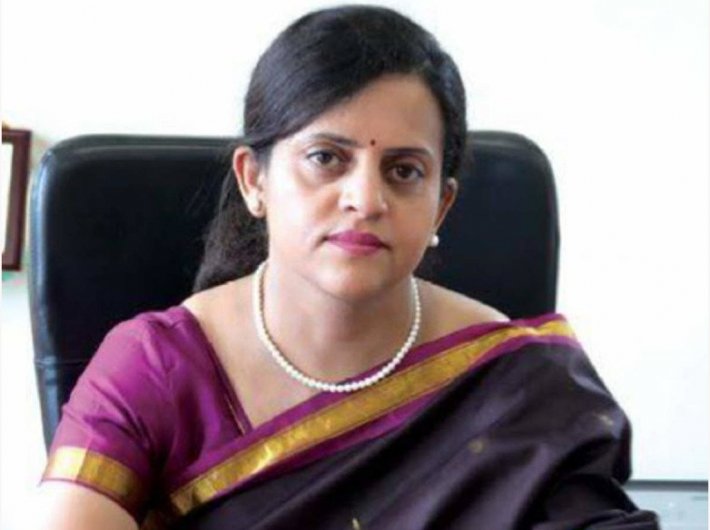Additional municipal commissioner Ashwini Bhide calls for converting land-based policy to need-based
Mumbai needs to convert its need-based policy to land-based policy and plan properly to handle crisis situations in future, believes Ashwini Bhide, additional municipal commissioner, Municipal Corporation of Greater Mumbai (MCGM), who was part of Maharashtra chief minister Uddhav Thackeray’s task-force on Covid-19 response.
“Mumbai needs to address basic issues of sanitation, access, and proper planning within these settlements and ensure that its transportation systems work efficiently,” she said.
Bhide was speaking at a panel discussion, ‘Towards Resilient Cities: Lessons from the Pandemic, as part of Colaba Conversation 2021’, held by Observer Research Foundation in partnership with the Government of Maharashtra on February 2-3.
She said that with Mumbai’s 60%-65% population living in slums, due to population density and exposure level of the virus there was natural containment of virus spread in these areas. “This may not be the case in future and basic issues of sanitation, access, and proper planning within these settlements will have to be dealt with for future emergencies.”
The bureaucrat tasked with the responsibility of managing transport and traffic arrangements in Mumbai metropolitan region (MMR) and coordinating with agencies said that with the suburban railway system still not running to its full capacity the situation has shown that it important for the city to have protocols for an efficiently working transport system even during crisis situations in the future. She said accessibility of several other ancillary amenities during such crisis situations which are even otherwise stressed and their equitable distributions with proper protocols, risk assessment, management, and standardization will have to be done properly.
“Mumbai will have to reinvent and re-assist itself against those pyramids,” Bhide said.
Speaking on how Mumbai handled the pandemic, she said due to its geography the city is used to dealing with crisis situations. Being the business centre it is financially autonomous in a certain way and does not depend on state or central government for its finances. It leveraged its own resources. With business tycoons, tech companies, voluntary organisations and enthusiastic citizen groups its entire community got involved in pandemic management and gathered huge resources especially in the beginning of lockdown when the situation was very constrained.
Mumbai also leveraged artificial intelligence (AI) and digitisation of information. “Due to high support we received from AI and tech companies for accurate data capture, proper surveillance, information dissemination and even diagnostics, initially when testing kits were limited we used tech platforms to diagnose not only COVID-19 infection but also comorbidities, bed allotment and management, ambulance management, predictive analysis and resource planning. For all this Mumbai used voluntary and community participation which Mumbai has never been able to do otherwise,” she said.
The BMC set up infrastructure like Covid care centres and was able to create huge infrastructure in a short span ensuring quality of service and cost-effectiveness. All these facilities were free for citizens with outstanding quality. “This was completely opposite of normal experience of public health infrastructure that the citizens have and done uniquely where citizens were the focus of management. Additionally, we achieved administrative nimbleness, quick decision making as against regular bureaucratic stumbling blocks, interdepartmental rivalries, lack of coordination which were removed and overcome and processes were immediately tuned to the requirement to changing situation. We learnt here that by directly communicating with the community, providing transparent information on each and every aspect, and getting their feedback was very imp. Every info was in public domain and accessible to people,” she said.
Adding that the robust network of voluntary organisations, media and whoever could provide citizens feedback and share what BMC was doing for them, the civic body evenly distributed and decentralised its field organisation. 24x7 ward level war rooms connected to citizens were set up and taking their feedback. She credited the central team for consistently providing leadership based on data-driven insights and said they were very well informed and dynamic in their decision making, continuously changing policies and very accessible to all given responses. This does not normally happen with the government.
“We completely changed gears and reinvented ourselves. It is due to the way we dealt with the situation that now Mumbai has very limited cases. Now we have enough infrastructure to deal with any spikes and bumps that may happen in the future and all protocols and processes are set and we know how to addresses them. Despite the gaps the situation also harnessed our hidden strengths, potential, and possibilities,” said Bhide adding that challenge now for the administration will be on how to be more citizen-centric and institutionalising it all to make it part of its regular protocol.

